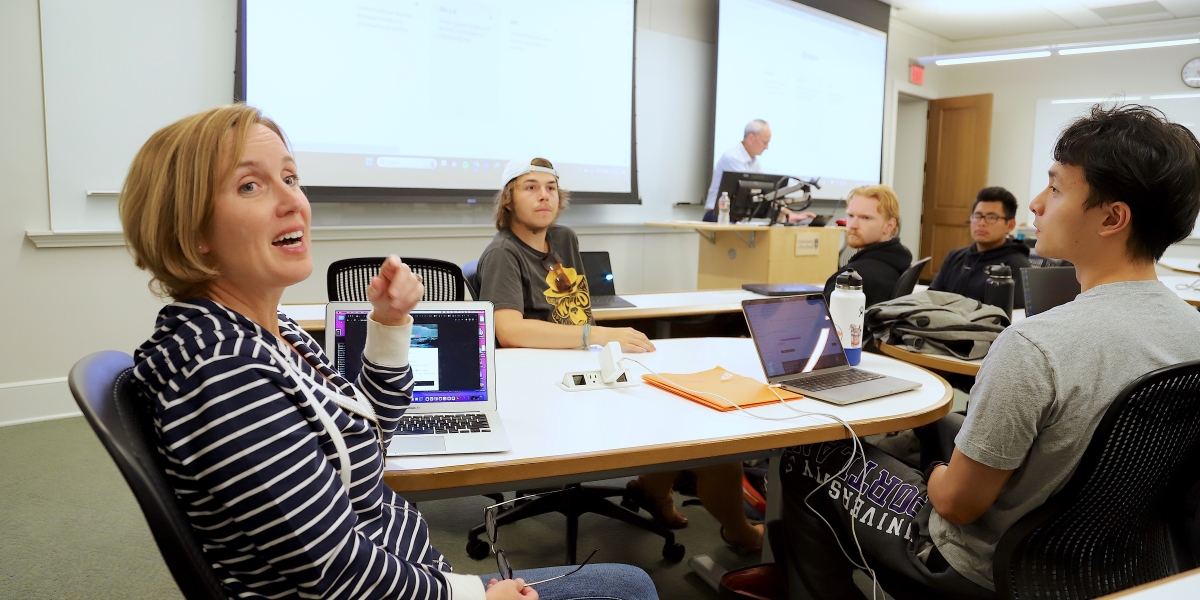2023 FALL
Investigating AI
UP explores the impact of AI tools on education and beyond.

Photo by Sami Edge/The Oregonian
IN SEPTEMBER The Oregonian sent journalist Sami Edge to the “Exploring and Using Generative AI Tools” class at University of Portland, one of several Oregon schools she visited to learn how higher education is navigating new developments in artificial intelligence (AI).
The field—as you have no doubt heard—is exploding. But how AI will be used, how it will be regulated, and what it will mean to our everyday lives is still unfolding. The title of the article nailed it: “Colleges Race to Keep up with Artificial Intelligence.” Because it is a race.
In addition to visiting the interdisciplinary class co-taught by seven people (the professors are calling it a “pop up class”), Edge spoke to University of Portland’s dean of the College of Arts and Sciences Valerie Banschbach, who believes a liberal arts institution like University of Portland is the right place to be investigating AI, its uses, and the big questions it might present.
“AI parallels things like climate change,” Banschbach said. “If you’re viewing it as a threat and a problem, it really requires not just the engagement of the technologists, the engineers, the scientists, but the humanities folks who have that grounding in cultural awareness. If we’re going to turn AI into an opportunity for humanity instead of a huge threat that has the potential to completely sink us, we’ve got to have the full interdisciplinary conversation.”
The class has a basic “how to” element at its core. Is Bard better than ChatGPT? Why does Claude seem more helpful than Bing? How can you write a prompt to maximize your experience with AI? How can it be used as a research tool? Or a teaching tool? Is AI really all that helpful if it sometimes gets things wrong? How should professors use it? But larger questions lurk just under the surface: What are the ethics here? What does it mean that we can create something in the style of an artist, but that artist hasn’t been paid to help the engine generate likenesses? What is the difference between artificial intelligence and human intelligence and when will the distinction matter most? If we use AI to help with writing, do we need to confess that AI was used? Can AI make language more equitable?
As of this writing, the class is less than halfway through. There’s so much more to explore.
Your Portland magazine editors decided to take the class to lean into this subject. We started out in a spirit of curiosity and a little dread—is it coming for our jobs?!—and our experience has bloomed into a fascinating and, at times, perplexing conversation. We hope to bring you in on aspects of that ongoing conversation in the issues ahead, as we try to get our minds around artificial ones.
More Stories
Beware the AI Shortcut
Advice from a national best-selling author on artificial intelligence in education and literature.
- Story by Jess Walter